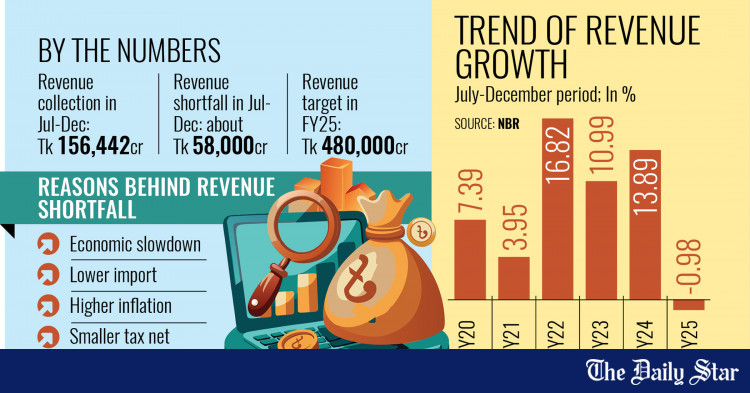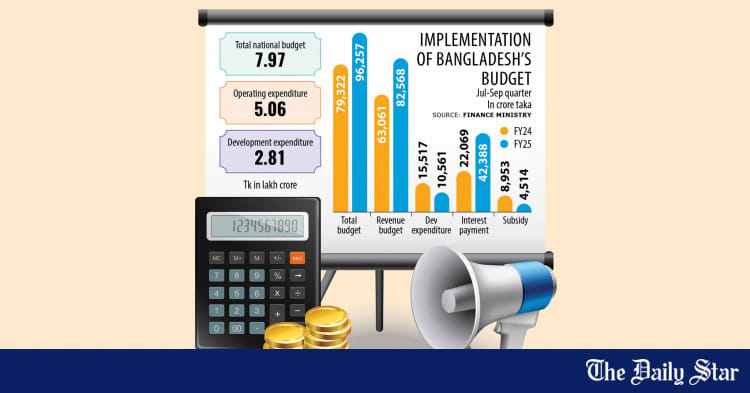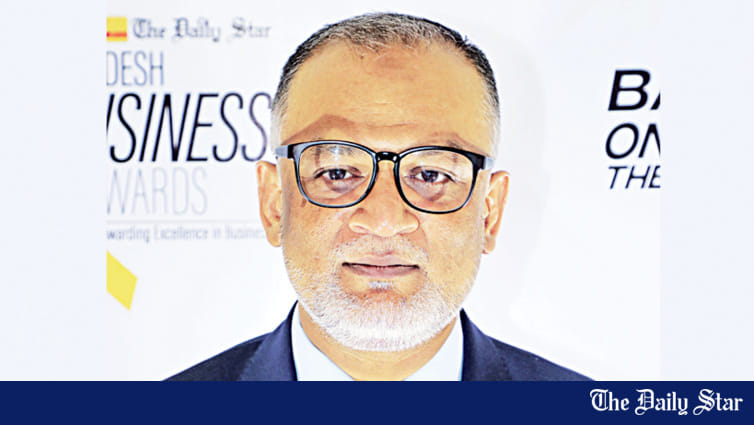Saif
Senior Member
- Jan 24, 2024
- 12,725
- 7,062
- Origin

- Residence

- Axis Group

- Copy to clipboard
- Thread starter
- #469

Bangladesh loses over 2,500 hectares of cultivable land every year: DAE
The DAE has undertaken a new plan to produce safe food
Bangladesh loses over 2,500 hectares of cultivable land every year: DAE
The DAE has undertaken a new plan to produce safe food

Around 2,500 to 3,000 hectares of cultivable land are converted and used for non-agricultural purposes every year in Bangladesh, raising serious concerns about future food security, according to experts and stakeholders.
The population is increasing day by day while the amount of land under cultivation is decreasing, Md Sawkat Osman, director for the crops wing at the Department of Agricultural Extension, said at a seminar today.
"Many people are constructing houses, brick kilns and other structures on cultivable land. This could have a significant impact on the nation's ability to meet its growing food demand."
The seminar was jointly organised by the Consumers Association of Bangladesh and Friends in Village Development Bangladesh at the Bangladesh Food Safety Authority office.
Osman said the DAE has undertaken a new plan to produce safe food.
In the first phase, 2 crore farmers will be given smart cards, which will be used to organise agricultural production by region. The initial phase targets the production of eight specific crops, with a focus on increasing agricultural output through the use of organic fertilisers, he added.
Muhummad Nazim Uddin, senior scientific officer of the Horticulture Research Center at the Bangladesh Agricultural Research Institute, said: "The organic nature or fertility of our soil has drastically decreased.
"There is no guarantee that the food being consumed is completely safe. Although these issues have been discussed for a long time and some initiatives have been taken, there has not been any significant development so far," he added.
Uddin added that adopting sustainable and environmentally friendly agricultural technologies at the production level in Bangladesh is crucial to ensuring food security and combating the challenges of climate change.
He also said the formulation and implementation of policies to ensure a balance between demand and supply for the consumers in the country were essential.
Fakir Muhammad Munawar Hossain, director for the operations and laboratories department of the Directorate of National Consumers' Right Protection, said proper enforcement of laws must be ensured alongside social awareness to ensure safe food for consumers.
Raising social awareness requires creating a social movement, which in turn necessitates political commitment, he added.
Zakaria, chairman of the BFSA, said it was essential for people involved in food production to have proper knowledge and training. Online training programmes alongside training centres need to be established for restaurant staff and owners, he added.
He also cited the need to increase manpower at the BFSA, pointing out that there is only one official designated for the whole Mymensingh region, which has a population of 60 lakh.
As of 2023, there were 88.29 lakh hectares of cultivable land in the country, according to data from the Ministry of Agriculture.
The DAE has undertaken a new plan to produce safe food
Around 2,500 to 3,000 hectares of cultivable land are converted and used for non-agricultural purposes every year in Bangladesh, raising serious concerns about future food security, according to experts and stakeholders.
The population is increasing day by day while the amount of land under cultivation is decreasing, Md Sawkat Osman, director for the crops wing at the Department of Agricultural Extension, said at a seminar today.
"Many people are constructing houses, brick kilns and other structures on cultivable land. This could have a significant impact on the nation's ability to meet its growing food demand."
The seminar was jointly organised by the Consumers Association of Bangladesh and Friends in Village Development Bangladesh at the Bangladesh Food Safety Authority office.
Osman said the DAE has undertaken a new plan to produce safe food.
In the first phase, 2 crore farmers will be given smart cards, which will be used to organise agricultural production by region. The initial phase targets the production of eight specific crops, with a focus on increasing agricultural output through the use of organic fertilisers, he added.
Muhummad Nazim Uddin, senior scientific officer of the Horticulture Research Center at the Bangladesh Agricultural Research Institute, said: "The organic nature or fertility of our soil has drastically decreased.
"There is no guarantee that the food being consumed is completely safe. Although these issues have been discussed for a long time and some initiatives have been taken, there has not been any significant development so far," he added.
Uddin added that adopting sustainable and environmentally friendly agricultural technologies at the production level in Bangladesh is crucial to ensuring food security and combating the challenges of climate change.
He also said the formulation and implementation of policies to ensure a balance between demand and supply for the consumers in the country were essential.
Fakir Muhammad Munawar Hossain, director for the operations and laboratories department of the Directorate of National Consumers' Right Protection, said proper enforcement of laws must be ensured alongside social awareness to ensure safe food for consumers.
Raising social awareness requires creating a social movement, which in turn necessitates political commitment, he added.
Zakaria, chairman of the BFSA, said it was essential for people involved in food production to have proper knowledge and training. Online training programmes alongside training centres need to be established for restaurant staff and owners, he added.
He also cited the need to increase manpower at the BFSA, pointing out that there is only one official designated for the whole Mymensingh region, which has a population of 60 lakh.
As of 2023, there were 88.29 lakh hectares of cultivable land in the country, according to data from the Ministry of Agriculture.














